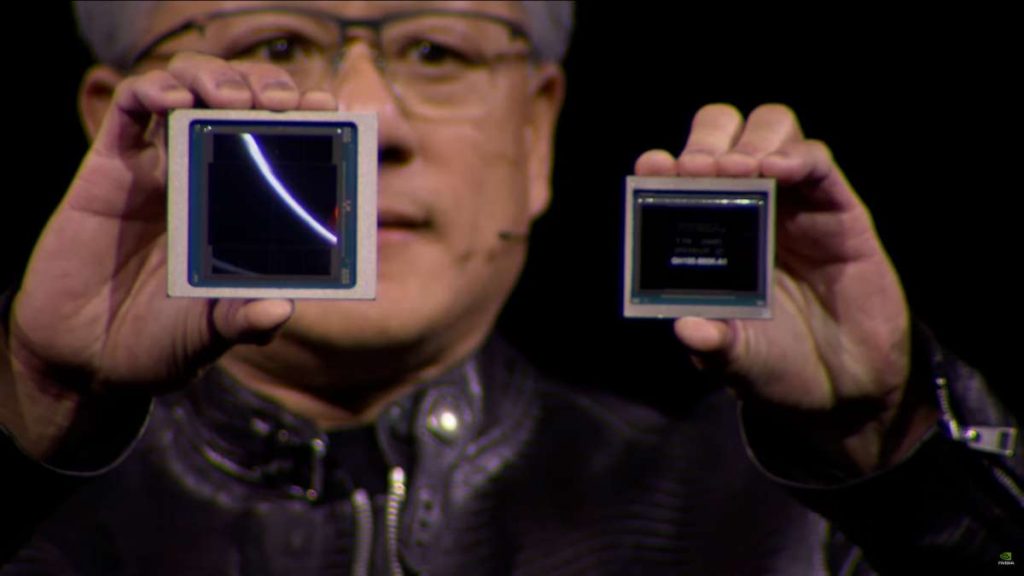NVIDIA’s recent GTC conference turned heads with the revelation of the Blackwell GPU architecture, named in honor of David Harold Blackwell, a trailblazer in mathematics and statistics.
The flagship model, the B200 GPU, boasting 208 billion transistors nestled within two state-of-the-art chiplets, all interconnected by a rapid 10TB/s link. NVIDIA’s CEO, Jensen Huang, heralded it as “the world’s most advanced GPU in production.” This new generation GPU introduces the second-gen Transformer Engine, doubling the AI model sizes with an innovative 4-bit precision, while the 5th-gen NVLink fosters collaboration among up to 576 GPUs to tackle trillion-parameter models. An AI reliability engine ensures uninterrupted supercomputer operation, essential for extensive training durations.

Huang’s presentation highlighted the liquid-cooled B200 prototype, underpinning Blackwell’s leap in AI inference performance, especially when juxtaposed with its predecessor, the Hopper generation. The B200 is poised to deliver 2.5 times the FP8 AI performance per GPU, double the FP16 throughput, and a staggering 30 times faster processing for expansive language models.
Designed meticulously to handle the colossal computational and memory demands of trillion-parameter AI models, Blackwell signifies a quantum leap in efficiency and performance — where training a GPT model with 1.8 trillion parameters is dramatically more resource and energy-efficient, reducing the need for extensive GPU farms and slashing power consumption drastically.
NVIDIA has demonstrated the power of Blackwell by showcasing the DGX SuperPOD, which is a cutting-edge AI supercomputer that includes up to 576 Blackwell GPUs, providing an incredible 11.5 exaflops of AI computing power. Each DGX GB200 system integrates 36 Blackwell GPUs with Arm-based Grace CPUs, which highlights NVIDIA’s vision of creating a robust and unified computing ecosystem. While initially designed for AI and data centers, Blackwell’s advances are expected to change the gaming GPU landscape as well.
Tech giants such as Amazon, Google, Microsoft, and Tesla are already lining up to integrate Blackwell into their infrastructures.
